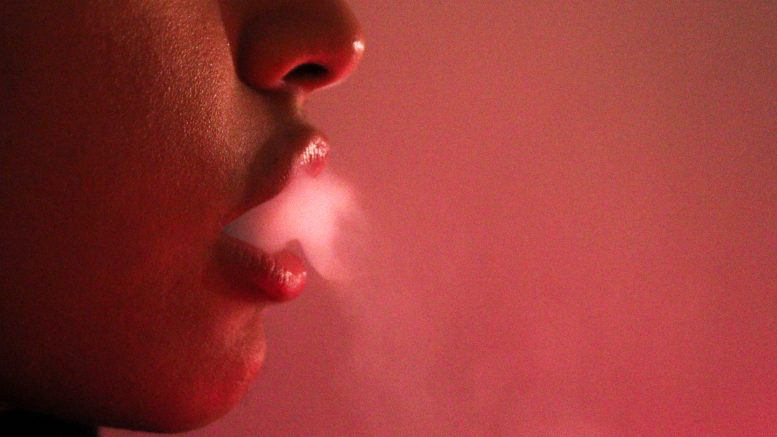Diego Diaz / Contributing Writer
Teen Hispanic/Latinx e-cigarette use has dropped ever since the pandemic according to an FIU study conducted by the university’s Research and Minority Institution.
The research is an ongoing study, which is part of the Antecedents and Consequences of Electronic (ACE) Nicotine Delivery Systems Project, a five year project with 260 Hispanic/Latinx high schoolers involved in the study. The project examines the risk and protective factors leading to e-cigarette use, and the effects they have on the developing brain.
ACE project researchers believe the drop in use is due to the transition from in-person classes to remote learning.
Headshot of ACE Project Principal Investigator Elisa M. Trucco.
“Interestingly, in a lot of the high schools that we went to, students would get e-cigarettes from adults that were not connected to the schools,” said Dr. Elisa Trucco, FIU associate professor of psychology, and ACE Project principal investigator. “High schoolers would come to the parking lot… and would buy these products from their van.”
Youth vaping has increased dramatically across the country and in South Florida according to the Florida Youth Tobacco Survey (FYTS).
In 2018, about 25 percent of Florida high school students reported current use of electronic vaping – a 58 percent increase compared to 2017. In Miami-Dade County, 15.2 percent of high school students reported using electronic vapes in 2018, determined the survey.
However the FIU study indicated a drop in e-cigarette use during the pandemic, according to Trucco.
“COVID has perhaps been protective in terms of substance abuse, but what we do see is that it has significantly increased stress, anxiety and depression,” said Trucco. “Some of our work suggests that increased exposure to COVID related news and increasing CDC guidelines, has led to a reduction in what teens view to be their quality of life”.
Due to the long term consequences of these mental health ailments, ACE Project researchers are worried about their impact on the return to in-person classes.
“Once restrictions loosen up, and students go back to school, what you’re going to see is an uptick in substance use, as a way to cope with some of these elevations in mental health problems,” said Trucco.
This would especially be felt in South Florida, as they have had high numbers of students using e-cigarettes according to FYTS.
“South Florida’s e-cigarette use [is] significantly higher than the national average,” said Trucco. “We do see a higher rate of use within Hispanic/Latinx youth.”
A separate study carried out by FIU’s Research on Child and Adolescent Health Lab has found that parents’ perception of e-cigarette plays a significant role towards a teenager’s decision to use them. The phenomenon was especially seen within Hispanic/Latinx families, as they demonstrate an interdependence towards each other or Familismo, mentioned Trucco.
“There are certain aspects of Hispanic families, such as Familismo, which may enhance the impact parents may have on the behavior of their children,” said Trucco.
ACE project researchers hope their study will provide insight needed to tackle the pressing issue of youth e-cigarettes use.
“Some of our research suggests that schools didn’t know about the rising numbers of e-cigarrette use, they needed the information,” said Trucco. “A lot of these prevention efforts, especially the work my team is doing, is providing the education so that parents can have the conversation with their kids.”






Be the first to comment on "FIU Psychologists Research COVID-19’s Impact on Hispanic Teen E-Cigarette Use"